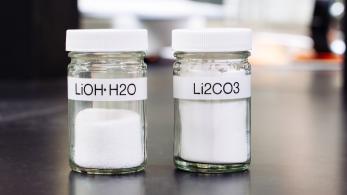Dec. 10, 2024
Albemarle’s commitment to responsible mining extends beyond extracting valuable minerals from rock. We take particular care with mine tailings, the material left over after sought-after minerals – in our case, lithium – are separated from rock or soil.
In the mining industry, it is common that non-ore bearing material like tailings must be stored due to the large volumes generated.
Albemarle’s approach expands the vision for these materials, storing them safely and responsibly, but also exploring whether they can be repurposed as a material for a different industry.
“Finding sustainable outlets for our co-products is not only beneficial to Albemarle but also our partners and communities,” says Christine Stroh, Albemarle’s global business Manager. “We want to enable a circular economy for tailings through innovative and creative upcycling.”
These materials include processed rock and minerals that are typically sand- to clay-like in particle size. They may have a variety of uses in the construction industry.


